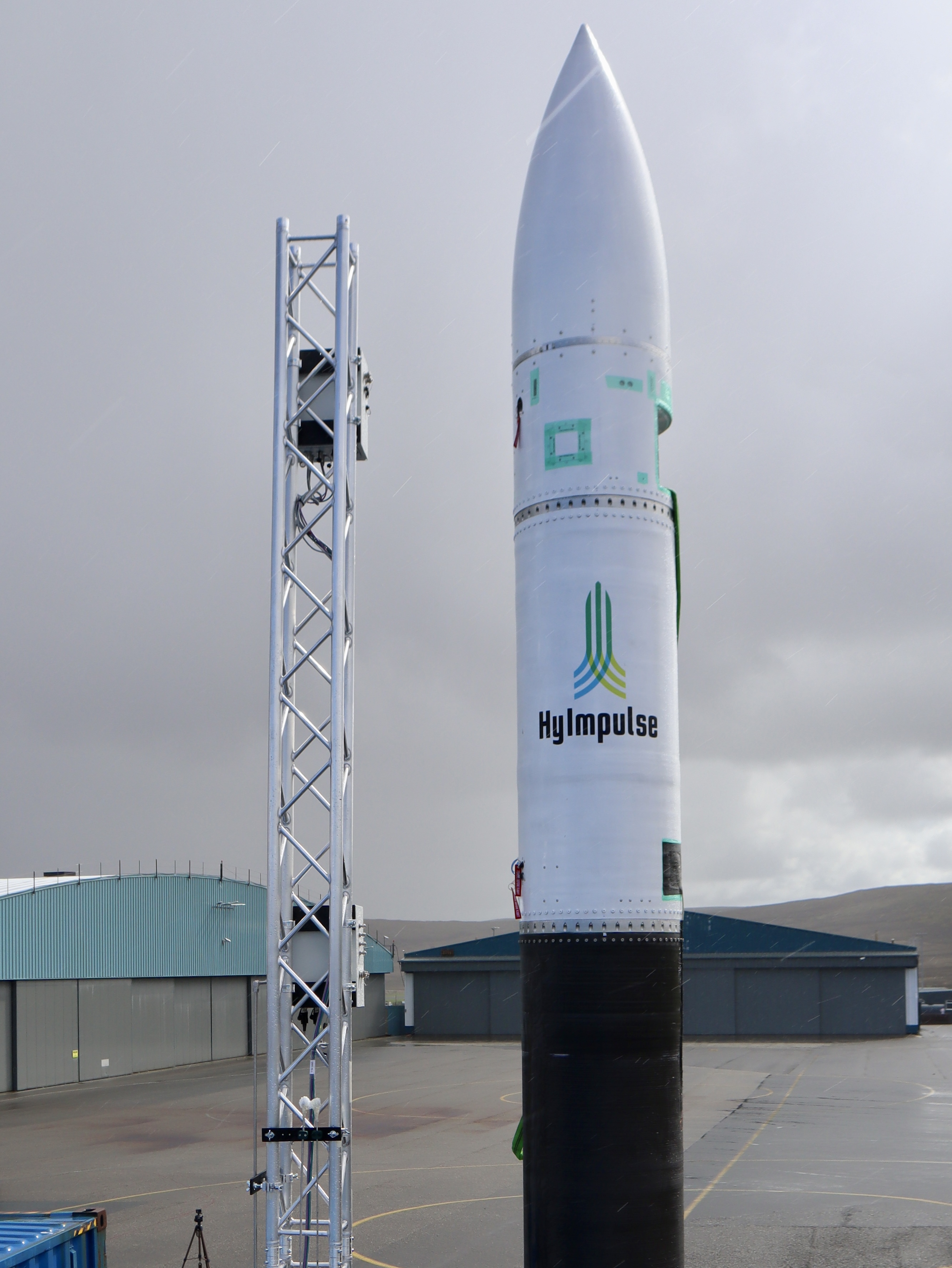Germany's First Private Rocket Launch has the Potential to Revolutionize Rocketry with a Game-Changing Technology
by Virgil Labrador, Editor-in-Chief
Washington, D.C. March 19, 2024--In the heart of Germany, a rocket startup company, esteeped in the German tradition of excellence in rocketry and space technology, has been quietly making preparations for Germany’s first private launch in the new space era with a launch window presumably starting at the end of April this year. The company, HyImpulse, founded six years ago by entrepreneurial aerospace engineers from the Stuttgart University, has been working diligently on their mission in a seemingly remote part in Southern Germany, nestled close to the rocket test center of the German Aerospace Center (DLR), which has proven advantageous for the company's research and development efforts.
While HyImpulse may have operated quietly thus far, their ambitions speak volumes and they seem to be on the right track to surpass their German competitors. If successful, their innovative new approach to space transport has the potential to make space exploration not only more economical but also more sustainable. Following in the footsteps of Germany’s pioneering achievements in rocketry and space technology, HyImpulse aims to reinvigorate Europe's presence in the aerospace industry with innovative space transportation solutions reminiscent of the glory days of Ariane.
 |
| Hyimpulse's innovative SR75 single-stage rocket which will be launched at the Koonibba Test Range, Australia in late-April this year. |
Led by a team that previously broke a world record with their first student rocket in 2016, HyImpulse has been developing a groundbreaking propulsion system – a hybrid engine that utilizes paraffin as its propellant, a substance akin to non-explosive candle wax—a common household item. The use of paraffin would present many benefits and advantages, not the least of which includes much lower cost, highest performance and safe and easy to use.
Hybrid rocket engines use a combination of both liquid and solid propulsion. Therefore, they offer the simplicity and safety of solid rockets together with the controllability of liquid rockets. This makes them easier to handle and store, and they have fewer parts than traditional engines.
By eliminating the need for costly components like high-performance turbo-pumps, HyImpulse's engine offers a much more cost-effective and efficient solution for launching payloads into space. Konstantin Tomilin, Chief Operating Officer of HyImpulse, expressed his confidence in the technology, stating, "Our in house developed hybrid propulsion system will disrupt the current launch industry. It stands out for its ease of operation, unparalleled safety features, and rapid response capabilities, marking a new era of efficiency and technological advantages in launch.”
HyImpulse’s first version of its orbital Small Launcher, SL1, has a payload capacity above 600 kg to low earth orbit, while its SR75 is a single-stage rocket also powered by HyImpulse´s rocket engine using a solid paraffin fuel and liquid oxygen. It carries payloads up to 250 kg and to fly up to an altitude of 300 km. The upcoming SR75 maiden launch is set to flight-qualify this new propulsion technology, a cornerstone in the development of their SL1 three stage orbital launcher.
HyImpulse CEO Mario Kobald says, ‘Launching our first rocket from the Koonibba Test Range is a huge milestone for our company and we are looking forward to the learnings that this launch will provide our team.’ Co-CEO Christian Schmierer adds, ‘Launching HyImpulse’s first rocket from the other side of the globe, shows Southern Launch’s and HyImpulse’s capability of serving a global market in a rapid, efficient and responsive cooperation from anywhere around the world.’
The coming launch at the Koonibba Test Range, Australia’s largest commercial rocket testing facility of the SR75 rocket will be a significant milestone in Hyimpulse’s drive towards global awareness of this new rocket technology and providing safe, reliable and lower cost launches. It’s a company well worth watching. So watch this space for further developments.





